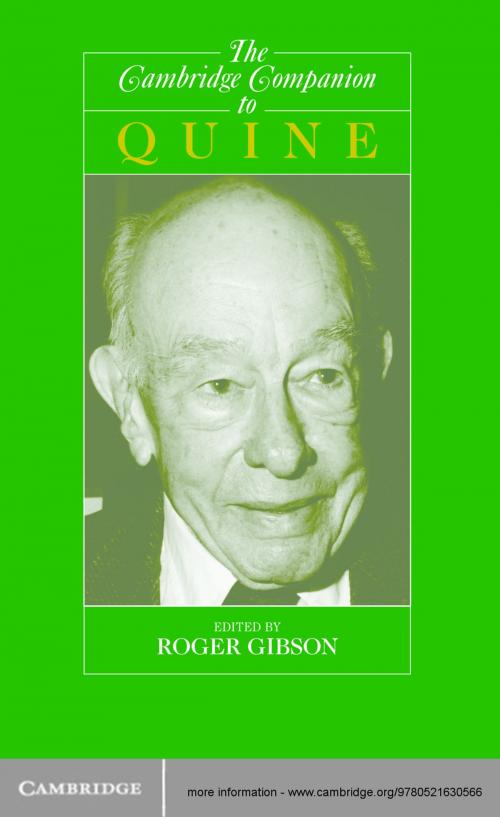| Author: | ISBN: | 9781139815833 | |
| Publisher: | Cambridge University Press | Publication: | March 29, 2004 |
| Imprint: | Cambridge University Press | Language: | English |
| Author: | |
| ISBN: | 9781139815833 |
| Publisher: | Cambridge University Press |
| Publication: | March 29, 2004 |
| Imprint: | Cambridge University Press |
| Language: | English |
W. V. Quine (1908–2000) was quite simply the most distinguished analytic philosopher of the later half of the twentieth century. His celebrated attack on the analytic/synthetic tradition heralded a major shift away from the views of language descended from logical positivism. His most important book, Word and Object, introduced the concept of indeterminacy of radical translation, a bleak view of the nature of the language with which we ascribe thoughts and beliefs to ourselves and others. Quine is also famous for the view that epistemology should be naturalized, that is conducted in a scientific spirit with the object of investigating the relationship between the inputs of experience and the outputs of belief. The eleven essays in this volume cover all the central topics of Quine's philosophy: the underdetermination of physical theory, analycity, naturalism, propositional attitudes, behaviorism, reference and ontology, positivism, holism and logic.
W. V. Quine (1908–2000) was quite simply the most distinguished analytic philosopher of the later half of the twentieth century. His celebrated attack on the analytic/synthetic tradition heralded a major shift away from the views of language descended from logical positivism. His most important book, Word and Object, introduced the concept of indeterminacy of radical translation, a bleak view of the nature of the language with which we ascribe thoughts and beliefs to ourselves and others. Quine is also famous for the view that epistemology should be naturalized, that is conducted in a scientific spirit with the object of investigating the relationship between the inputs of experience and the outputs of belief. The eleven essays in this volume cover all the central topics of Quine's philosophy: the underdetermination of physical theory, analycity, naturalism, propositional attitudes, behaviorism, reference and ontology, positivism, holism and logic.















